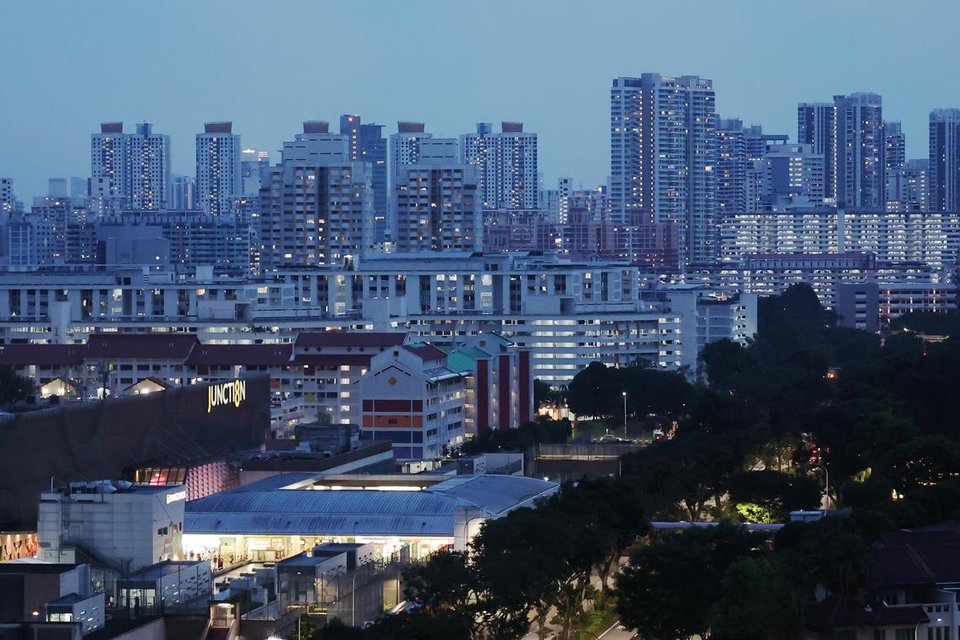Mott MacDonald to study safety, feasibility of advanced nuclear tech like small modular reactors: EMA

(Photo credit: ST Photo/Brian Teo)
Source: The Straits Times
Mott MacDonald, a consultancy firm with more than 60 years of experience in the nuclear energy industry, has been appointed by the Government to study the safety and feasibility of advanced nuclear technologies such as small modular reactors (SMR).
The Energy Market Authority (EMA) said on Sept 2 that the global engineering, management and development consultancy firm will conduct a study to evaluate the safety performance and technical feasibility of such technologies.
The study, which will take up to two years, will be based on the safety features, technology maturity and commercial readiness of the advanced technologies.
Advanced nuclear technologies are fourth-generation reactors that are mostly in the development stage, and are designed to be safer while producing less nuclear waste.
These include SMRs, which are compact systems that can be factory-assembled and installed in dense urban areas as they have a smaller footprint, as well as advanced reactors that use novel cooling systems or fuels.
“With over 60 years of experience in the nuclear energy industry, Mott MacDonald has been providing technical, regulatory and policy advisory services to technology developers and government agencies in the areas of advanced nuclear energy technologies and nuclear safety analysis,” said EMA.
“As part of the study, we expect Mott MacDonald to conduct simulation modelling to further validate the safety performance of advanced nuclear energy technologies,” EMA’s director of energy technologies Darryl Chan told The Straits Times.
The firm has supported various government agencies and regulatory bodies around the world with objective technical assessments.
Some of Mott MacDonald’s work in the nuclear energy scene includes providing safety, engineering, environmental and regulatory advisory, and generic design assessment for an SMR model by Holtec Britain.
The latter is the British subsidiary of Holtec International, a US-based firm that designs and manufactures equipment for the nuclear industry.
Mott MacDonald is also designing facilities that will help researchers in Belgium gain a new understanding of the use of radioisotopes – or radioactive elements – for medical purposes and to explore potential materials for nuclear fusion, according to its website.
The consultancy firm has also provided safety and engineering services to the UK’s Office for Nuclear Regulation, and has supported the design and safety assessments of various advanced nuclear energy technologies as part of the UK Generic Design Assessment process.
Mr Chan said that in EMA’s assessments of proposals, Mott MacDonald performed well in terms of quality and price competitiveness, as well as its track record in advanced nuclear energy technologies and nuclear safety.
Besides technology, Singapore will need to build capabilities and conduct assessments across multiple areas such as environmental impact analysis, he added.
Mott MacDonald’s appointment follows EMA’s December 2024 call for proposals from consultants to study the safety performance of various advanced nuclear technologies being developed globally.
Applicants were required to have a track record of providing relevant advisory services and list their executed projects in the nuclear energy sector in the past decade from 2014.
Among other things, applicants had to describe their working relationship with the developers of advanced nuclear energy systems.
The initial pre-tender stage for the study closed on Jan 17 with 24 applicants, including engineering consultant Arup Singapore, Hyundai Engineering and Construction, Surbana Jurong Consultants and KPMG Services.
In 2012, the Republic considered atomic power unsuitable for the small island state, but Singapore’s approach to nuclear energy has changed over the years, as new technologies came online.
SMRs have increasingly been on Singapore’s radar as they are thought to be more suitable for the land-scarce, population-dense country.
These reactors have a lower power capacity, enhanced safety standards and require much smaller buffer zones, compared with conventional reactors.
In 2022, an EMA report mentioned that emerging technology, including nuclear and geothermal, could potentially supply around 10 per cent of Singapore’s energy needs by 2050.
EMA said on Sept 2 that Singapore has not yet made any decision on deploying nuclear energy. However, it is important for the country to continue to build capabilities and work with experts to improve its understanding of nuclear energy, especially advanced nuclear energy technologies, the authority added.
“Any decision to deploy nuclear energy will need to be carefully considered against its safety, reliability, affordability and environmental sustainability in Singapore’s context,” EMA said.
Minister-in-charge of Energy & Science and Technology Tan See Leng had told ST in an earlier interview that even though Singapore has not made a decision on such use, it still has to build its capabilities in nuclear energy as countries in the region have publicly signalled their intent to build such facilities.
Five Asean countries – Vietnam, Indonesia, the Philippines, Malaysia and Thailand – have said they are either studying the feasibility of advanced nuclear technology to meet their growing energy needs, or already have plans to build new reactors in the coming decades.
The latest study follows Singapore’s other efforts to learn more about emerging nuclear technologies. The Republic has signed agreements with other countries to learn more on this front.
For example, in July 2024, the Republic inked the 123 Agreement on Nuclear Cooperation with the US, which will allow Singapore to learn more about nuclear technologies and scientific research from American organisations.
In July, the Singapore Nuclear Research and Safety Institute at NUS was launched with an expanded research scope, additional funding and an aim to train 100 nuclear experts by 2030 – up from 50 today.
Correction note: In an earlier version of the story, it was reported that the study is for a year. EMA has clarified that it will take up to two years instead.
